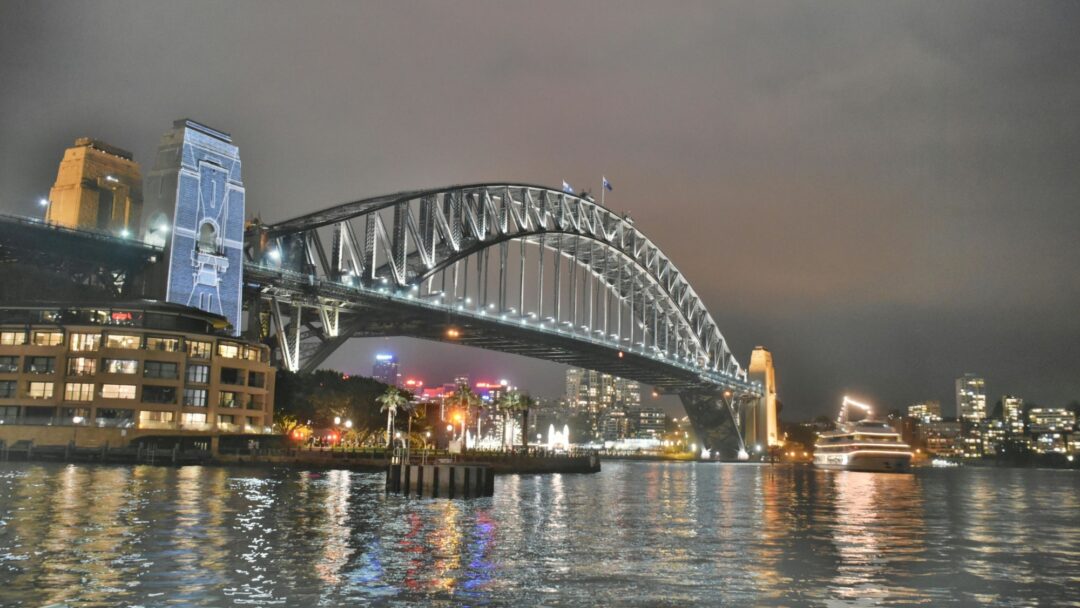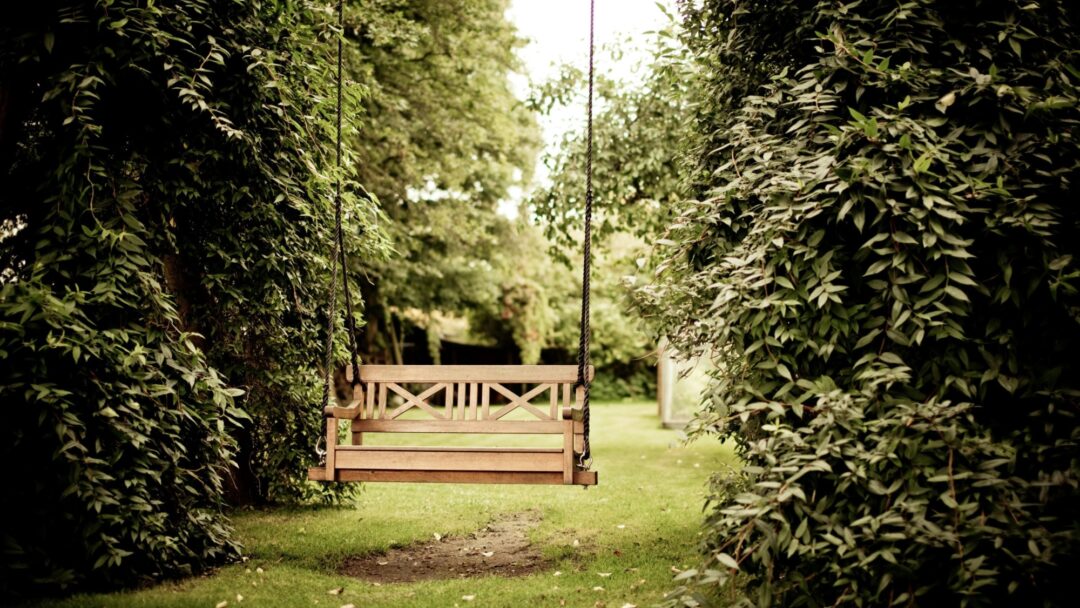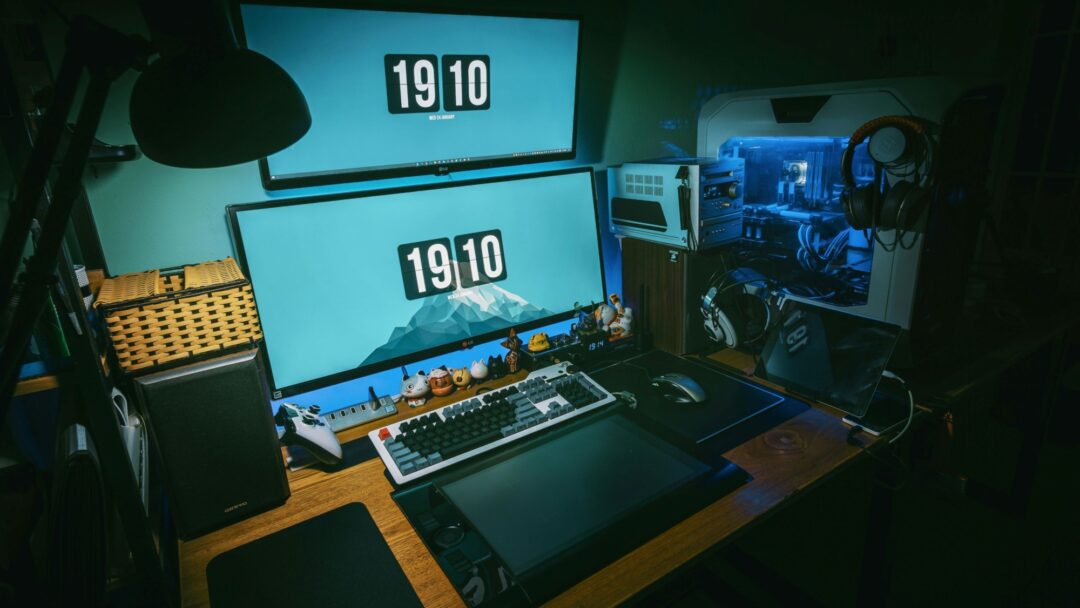Audio
Lauren Henley - Audio Description
Ablequest by
2RPH3 seasons
16/6/2023
14 mins
What are the challenges of providing audio description on Oz TV? Hear Lauren Henley, Aust Federation of Disability Organisations.

Australian television is a long way behind other developed countries in providing audio description as an assistive tool for blind and vision impaired people.
Lauren Henley, who is Senior Systemic Advocate at the Australian Federation of Disability Organisations and who has been a tireless advocate for audio description on Australian TV, talks to Barbara Sullivan about the challenges in achieving this.
Original broadcast date: 16.06.23
Speaker 1 00:03
With information on the latest developments in assistive technology and initiatives, 2RPH brings you AbleQuest.
Speaker 2 00:14
you
Speaker 1 00:18
Hello, I'm Manny Roper. More than ever before, television, with all its vastness of programming and multitude of channels, brings the world into our living rooms and is part of everyday life. This world can be shared by those with hearing loss via closed captioning, which is mandatory on Australian TV.
Speaker 1 00:39
But people who are blind or have impaired vision are limited in their access to TV programs. Audio description, an on -demand assistive service which depicts what is occurring on screen, would change this.
Speaker 1 00:55
And one person who has worked hard to make it happen is Lauren Henley, our guest on AbleQuest today. Lauren is Senior Systemic Advocate at the Australian Federation of Disability Organisations. She spoke with Barbara Sullivan about the status of audio description on Australian television and the effort to make it widely available.
Speaker 3 01:19
Hello Lauren, welcome to AbleQuest. Now you are a committed and tireless policy advocate on behalf of blind and vision -impaired people across Australia. Before we start on today's discussion, which is about audio description on Australian television, explain about the AFDO and its aims.
Speaker 2 01:39
So AFSO is the Australian Federation of Disability Organisations and we market ourselves as the peak body for people with lived experience of disability in Australia. So our members are disability representative organisations that represent certain groups of people with disabilities.
Speaker 2 01:57
To give you an example, Blind Citizens Australia is one of our member organisations and we work very closely with them on many issues that affect people who are blind or vision impaired. We're very much here to improve the experience for people with disability more broadly.
Speaker 3 02:12
And you've got a really solid career in advocacy. Are you a lawyer? What is your background?
Speaker 2 02:18
And I get asked that question a lot because I'm constantly fighting myself working with people who have public policy degrees and law degrees. I actually don't have a university degree at all. I got into disability advocacy purely by chance, really.
Speaker 2 02:32
I was voted in as the inaugural president of the Newcastle branch of Blind Citizens Australia when that branch was formed. And because I was already a known quantity to the organisation at that point when a paid position came up, I was able to get my foot in the door with them.
Speaker 2 02:47
That allowed me to proceed in my career without necessarily having the formal qualifications.
Speaker 3 02:53
Now, of specific interest to AbleQuest, today is the right of people with vision impairment to be able to use available assistive technology and services to experience television programs, as other people might, namely through the tool of audio description.
Speaker 3 03:09
What exactly is audio description? Tell us what you think it means.
Speaker 2 03:14
For me, audio description is it is to people who are blind or vision impaired, what captioning is to people who are deaf or hearing impaired. So it really fills in the blanks in a television program or film and it gives us access to information that's visual in nature that we wouldn't have access to otherwise.
Speaker 2 03:31
So the way it works is in between natural gaps in dialogue that would occur during a TEP program. There'll be a narrated voice that comes on and that's narrated voice will provide information about visual elements that appear on screen such as facial expressions, themes, settings, actions, costumes, so on and so forth.
Speaker 3 03:52
Is it difficult for a viewer to access audio description on television?
Speaker 2 03:56
Yeah, look, it's pretty straightforward. It does vary depending on the kind of TV you have and the kind of TV remote you have, but generally it will just be either in the settings itself or there will be a dedicated button on the TV remote for audio description.
Speaker 2 04:11
You just press it once to turn it on, press it again to turn it off. So it's very simple and it's not invasive for any members of the community who perhaps don't want to access that service and don't need that service.
Speaker 3 04:21
So audio description might be for more easily, I suppose, the news or a drama or a reality show would be quite difficult to imagine with a reality show.
Speaker 2 04:31
Yeah, and I think that's a really good point, Barbara, is audio description is fantastic. It gives us access to things we wouldn't have access to otherwise, but it doesn't necessarily lend itself well to all TV programs.
Speaker 2 04:42
There are certain kinds of television content that it wouldn't lend itself to quite as well. So for example, one of my all time favorite shows is the Gilmore Girls, which is very, very dialogue heavy.
Speaker 2 04:56
And I don't think they could audio describe that if they wanted to because they just aren't enough gaps in dialogue where that narration could come in and provide meaningful information about what's happening on screen.
Speaker 3 05:07
Now at the moment, are there any free to wear TV programs in Australia that are audio described?
Speaker 2 05:12
Yes, yes, there are. We do have audio described content available in Australia now on SBS and ABC. And that was only on Free2Ware until recently, but in the past couple of weeks, we've now had the ABC announced that they've made audio description available on their catch up service, iView.
Speaker 2 05:31
Michael Ward at Vision Australia often puts together a list of upcoming programs that will be aired on ABC and SBS with audio description. It's usually pretty easy. If you have a talking TV that to go through and figure out which programs do and don't have it, and certainly when I've had a look at the ABC iView app, it's very clearly labeled what does and does not have audio description.
Speaker 3 05:54
Lauren, you've been advocating for this for some time, even taking the issue to the UN Committee on the Rights of Persons with Disabilities. Tell us the story of what's happened so far.
Speaker 2 06:04
Yeah, look, it's quite difficult for nowhere to start. So as I mentioned, I started out my career in disability advocacy working for Blind Citizens Australia and audio description on television is an issue.
Speaker 2 06:15
They've been campaigning around 25 years now. It's been a long, long process. So I became involved in that campaign work back when I was working for BCA. And what we started to realise was that we really didn't have an effective mechanism within Australian Human Rights Law to say, this is appalling that we don't have this available on television consistently and it needs to change.
Speaker 2 06:41
Knowing that we didn't really have that framework within Australia to take it further because we've done everything we could with lodge complaints with the Australian Human Rights Commission that wouldn't go anywhere.
Speaker 2 06:51
We tried everything we could and we just kept hitting brick walls.
Speaker 1 06:55
Bye.
Speaker 2 06:56
Eventually I started to think about what other options are there outside of Australia to pursue this. And because Australia has signed a really important document called the Convention on the Rights of Persons with Disabilities, it means they have made a legal commitment to uphold the principles in that international treaty in the Convention on the Rights of Persons with Disabilities.
Speaker 2 07:17
It then means that if I as a person with disability feel that my rights under the Convention have been breached, I have the opportunity to make a complaint about that issue with this international committee called the Committee on the Rights of Persons with Disabilities.
Speaker 2 07:31
And I will point out that there's two articles of the Convention in particular that are critical to this issue. Article 9 talks about accessibility more broadly. And then article 30 talks about access to cultural life, theatre, sport, TV, all of those different things.
Speaker 2 07:47
And it very clearly states that any country that signed and ratified the Convention on the Rights of Persons with Disabilities does have an obligation to make sure that that content is available to all people with disability on an equitable basis.
Speaker 3 08:01
So what happens if a country doesn't live up to those obligations? In this case, it would seem Australia hasn't.
Speaker 2 08:08
It's a really good question because one of the key things that's meant to happen after a country ratifies a document like the Convention on the Rights of Persons with Disabilities is that country is meant to then take steps to embed the right set out under the Convention into domestic law, which would mean that if I decided that my rights had been breached, I can then hold the government accountable using our own domestic human rights framework without having to go to that international level.
Speaker 2 08:34
But unfortunately, that wasn't able to happen in this instance because Australia to this day still hasn't taken the steps it needs to to make sure that our rights are reflected in domestic legislation.
Speaker 3 08:45
So that legislation would be presumably the Broadcasting Services Act of 1992. Now, closed captioning is mandated in the Broadcasting Services Act. Why is audio description not?
Speaker 2 09:00
I think the backstory to it is, well, two things. The deaf community are fierce, tireless advocates. They advocate very, very strong around issues like this and they thought to have that recognized in the Broadcasting Services Act and perhaps fought harder than the blinds and vision impaired community did at that time.
Speaker 2 09:20
I think one of the other reasons historically had to do with cost because captioning traditionally is a lot more cost effective to produce than audio described content. However, now that we've got digital television in Australia that does become somewhat cheaper.
Speaker 3 09:36
there's been no indication that commercial stations would show good will in undertaking a program of gradually increasing the number of programs that are audio described.
Speaker 2 09:47
No. And I think this is why I would say that the absolute only solution to this problem is for minimum targets for audio description on television to be incorporated into that broadcasting services act because these are commercial entities.
Speaker 2 10:01
They're there to turn a profit at the end of the day and they are not going to out of the kindness of their heart provide this service that is going to cost them money but it's an obligation they have under international human rights law and domestic law.
Speaker 2 10:14
They're not going to do that unless they're mandated to. We want to see it reflected in the Broadcasting Services Act so that the government has the power to go to these broadcasters and say, well, this is a condition of you operating in Australia and you need to provide this service or sorry, but you're out of the game.
Speaker 2 10:30
And just to point out as well that captioning for people who are deaf or hearing impaired not only has it been available or mandated under the Broadcasting Services Act for many years, it's been two decades.
Speaker 2 10:40
So we're not talking about something that's happened in the last couple of years. We're talking about two decades. So we're a long way behind that.
Speaker 3 10:48
Now we interviewed an experienced theatre audio describer a while ago on AbleQuest. It was clear that it's a really special skill and particularly challenging as you mentioned before in real time situations of very dialogue dense programs.
Speaker 3 11:02
Are there enough trained people to actually deliver the work for the TV stations?
Speaker 2 11:07
It's a good question. I don't really know the answer to that. What I can tell you is there are a number of studios set up around Australia that do provide audio described content already and one of the main reasons for that is there's an overseas market for it.
Speaker 2 11:20
So Australian programs like Home in a Way and Neighbours for example, they're already produced with audio description for international audiences because in other countries it's a legal requirement that any TV show we send over there, it has to have an audio described track.
Speaker 3 11:37
So what are the next steps for you in this advocacy to get audio description enshrined in legislation?
Speaker 2 11:43
So the Australian government had to provide a response to the United Nations committees finding that yes, they had breached my human rights. In their response, they have committed to improving access to audio described content in Australia by putting together a targeted action plan that will sit underneath what's called Australia's disability strategy.
Speaker 2 12:05
That's a 10 -year strategy, so it commenced in 2021, it will conclude in 2031. And really what that strategy is a blueprint for saying we understand that we've signed on to this international convention on the rights of persons with disabilities.
Speaker 2 12:20
Because we've signed it, we now need to operationalise it within Australia and this document outlines how we intend to do that. So that's basically what that strategy does and this will be an action plan that sits underneath that that specifically focuses on audio described content, access to media, all of those sorts of issues.
Speaker 2 12:38
We don't know exactly what timetable they're looking at for that at this stage, but I guess the disappointing thing is that the government's response really fell short on the need to legislate around this issue.
Speaker 2 12:50
So they've made no commitment to amending the Broadcasting Services Act to include minimum targets for audio description. And because of that, what we're asking individuals and organisations to do if they do feel passionate about this issue is contact the Minister for Communications, Michelle Rowland, contact your local federal MP and let them know that this is something that is strongly needed by our community.
Speaker 2 13:16
We need this in trying in legislation and that's the direction the Minister needs to be taking.
Speaker 3 13:21
And then from your perspective, do you have a right to response?
Speaker 2 13:25
Yes, so I will have one final opportunity to provide my feedback on the Australian Government's official response. That will then go back to the UN Committee. And there are some things that UN Committee can do to come in and try and take steps to hold Australia slightly more accountable.
Speaker 2 13:43
But I've never been through this process, so it's a learning curve for me as well.
Speaker 3 13:47
Well, it's been a long road. Lauren, we'd love to come back to you and hear how things are going.
Speaker 2 13:52
That'd be fantastic. Thanks very much, Barbara.
Speaker 3 13:54
I have been speaking with Lauren Henley, Senior Systemic Advocate at the Australian Federation of Disability Organisations.
Speaker 1 14:09
You have just been listening to AbleQuest, a program that looks at developments in assistive technology. From Barbara Sullivan and Manny Roper, thank you for listening and goodbye to our next program.
Continue listening

Blind Sports Australia CEO Matt Clayton speaks about its work with blind and vision impaired athletes across 21 sports.
Matt Clayton - Blind Sports Australia
Ablequest by 2RPH
5/5/2023
•13 mins
Audio

Vivid, Sydney's celebration of creativity, seen from a disability access focus by its director.
Gill Minervini - Vivid
Ablequest by 2RPH
19/5/2023
•14 mins
Audio

This program discusses dance movement therapy and how it works - featuring Cecilia King of the Dance Therapy Association.
Cecilia King - Dance Therapy
Ablequest by 2RPH
14 mins
Audio

What are the challenges of providing audio description on Oz TV? Hear Lauren Henley, Aust Federation of Disability Organisations.
Lauren Henley - Audio Description
Ablequest by 2RPH
16/6/2023
•14 mins
Audio

In Part 1 of a 2RPH interview, assistive tech expert David Woodbridge explores latest innovations to make everyday life easier.
David Woodbridge - Tech Update Part 1
Ablequest by 2RPH
30/6/2023
•14 mins
Audio

Features Robert Duff-Silsby of Luddi, Perth company developing assistive devices for all people and bodies.
Robert Duff-Silsby - Sexual Wellbeing
Ablequest by 2RPH
13 mins
Audio

In Part 2 of this conversation with 2RPH's Ablequest, expert David Woodbridge reviews latest assistive technologies.
David Woodbridge - Tech Update Part 2
Ablequest by 2RPH
28/7/2023
•14 mins
Audio

Matt Clayton of Blind Sports Australia and the Oz team's Chef de Mission, discusses the forthcoming World Blind Games in the UK.
Matt Clayton - World Blind Games
Ablequest by 2RPH
11/8/2023
•13 mins
Audio

Prof Kim Marriott of the Monash Assistive Technology and Society Centre, talks about the purpose and work of the Centre.
Kim Marriott - Monash Assistive Technology and Society Centre
Ablequest by 2RPH
25/8/2023
•13 mins
Audio

Ablequest features an interview with Serena Ovens, new CEO of Assistive Technology Supplies Australia or "ATSA".
Serena Ovens - Assistive Technology Supplies Australia
Ablequest by 2RPH
14 mins
Audio

Part 1 of an interview on the voice-activated app, Bindi Maps.
Anna Wright - Bindi Maps (Part 1)
Ablequest by 2RPH
14 mins
Audio

This is Part 2 of an interview with Dr Anna Wright, explaining how Bindi Maps works.
Anna Wright - Bindi Maps (Part 2)
Ablequest by 2RPH
14 mins
Audio

Artist Ebony Wightman of disability-led We Are Studios talks about art and challenge.
Ebony Wightman - We Are Studios
Ablequest by 2RPH
20/10/2023
•13 mins
Audio

Prof. Leeanne Carey discusses the SENSe program, her team's world-first therapy to help stroke survivors.
Leeanne Carey - SENSe Therapy
Ablequest by 2RPH
2/11/2023
•13 mins
Audio

Youthworks Accessibility Minister Bec Baines talks of making church accessible to young people with disabilities.
Bec Baines - Youth and Worship
Ablequest by 2RPH
16/11/2023
•14 mins
Audio

Nikki Hind, Australia's first blind fashion designer, discusses her work.
Nikki Hind: Blind Grit
Ablequest by 2RPH
1 December 2023
•14 mins
Audio

Dr Dimity Williams, family GP, recommends spending more time in nature - and a "green hour" each day.
Green Hour: Dr Dimity Williams
Ablequest by 2RPH
5 December 2023
•14 mins
Audio

Imagine sitting in a wheelchair for hours, being unable to move your fingers or arm to do simple things like pick up a glass.
Konstanze Hager - Bateo
Ablequest by 2RPH
Konstanze Hager - Bateo
•14 mins
Audio

Action Audio is a new language being created to transcend sport.
Machar Reid - Action Audio
Ablequest by 2RPH
Machar Reid - Action Audio
•14 mins
Audio

What a difference one person with experience, passion and energy can make to many lives.
Julie Ross-Edwards - Head High
Ablequest by 2RPH
Julie Ross-Edwards - Head High
•14 mins
Audio

Driver educator outlines what's needed for a person with disability to get a driver's licence.
Ronak Shah: on-road driving education
Ablequest by 2RPH
12 January 2024
•14 mins
Audio

Vision Australia's Christo Sarantakis talks of his life, blindness and assistive tech changes.
Christo Sarantakis of Vision Australia
Ablequest by 2RPH
26 January 2024
•14 mins
Audio

Introducing Australia's first pictureless feature film, TOUCH, showing in Sydney.
Majella Knobel: "Touch" - open air movie
Ablequest by 2RPH
9 February 2024
•14 mins
Audio

An expert discusses the use of horticultural therapy for people with disabilities.
Steven Wells: horticultural therapy
Ablequest by 2RPH
23 February 2024
•14 mins
Audio

Features articles on latest blind-assistive tech including a new bus app and smart ear buds.
Assistive tech news catchup
Ablequest by 2RPH
8 March 2024
•14 mins
Audio

Features an innovative hospitality industry training program for people with disabilities.
Saraya O'Connell - Hotel Etico Independence Program
Ablequest by 2RPH
22 March 2024
•14 mins
Audio

Guests discuss the Obi robotic dining assistant for people with upper arm disabilities.
Hugh Kingley and Rachel Dekkar: Obi
Ablequest by 2RPH
19 April 2024
•14 mins
Audio

A spy-themed computer program tackles the mystery of social encounters - outlined by its company's CEO.
Kathleen Davey - Social Science Translated
Ablequest by 2RPH
3 May 2024
•14 mins
Audio

A Sydney organisation delivers creative arts and life skills to people with disabilities.
ChoppA Green - Studio Artes
Ablequest by 2RPH
17 May 2024
•14 mins
Audio

An award-winning Central Coast NSW disability service shares its successful strategies.
Lonestar Makoni - Breaking Barriers Disability Services
Ablequest by 2RPH
31 May 2024
•14 mins
Audio

Part 1 of a conversation with an Australian neuroscience research pioneer about benefits of music in brain injury recovery.
Professor Sarah Wilson (part 1)
Ablequest by 2RPH
14 June 2024
•14 mins
Audio

Part 2 of a conversation with a leading neuroscientist of benefits of music in brain injury recovery.
Professor Sarah Wilson (part 2)
Ablequest by 2RPH
28 June 2024
•14 mins
Audio

A CEO talks about his company's award-winning assistive physical therapy device.
Justin Keenan - LusioMate
Ablequest by 2RPH
12 July 2024
•14 mins
Audio

Information about a program teaching good cyber-security practices to make daily life safer.
Jess Wilson: Be Connected
Ablequest by 2RPH
26 July 2024
•14 mins
Audio

A veteran print disability broadcaster with macular degeneration shares her experiences.
Teresa Plane - 2RPH
Ablequest by 2RPH
9 August 2024
•14 mins
Audio

The founder of a blind-assistive technology company shares latest developments.
Peter Ford - Control Bionics (part 1)
Ablequest by 2RPH
6 September 2024
•14 mins
Audio

Part 2 of an interview with the head of an innovative blind-assistive technology company.
Peter Ford - Control Bionics (part 2)
Ablequest by 2RPH
20 September 2024
•13 mins
Audio

Looks at a project to better inform refugee and migrant women on AI.
Good Things - Jess Wilson
Ablequest by 2RPH
4 October 2024
•14 mins
Audio

An expert with lived experience corrects some widespread misconceptions about stuttering.
Dale Williams - Stuttering Awareness Day
Ablequest by 2RPH
18 October 2024
•14 mins
Audio

An inventor discusses his an innovative cane tip to help people with blindness or low vision.
Peter Rickards - Sensaball
Ablequest by 2RPH
15 November 2024
•13 mins
Audio

Part 1 of an interview with an Australian expert on low-vision-assistive technology, on AI and other developments.
David Woodbridge (part 1)
Ablequest by 2RPH
29/11/2024
•14 mins
Audio

Conclusion of an interview with a leading Australian expert on blind-assistive technology.
David Woodbridge (part 2)
Ablequest by 2RPH
13 December 2024
•14 mins
Audio

Looks at the leading stroke treatment work of the Royal Rehabilitation Hospital, Ryde NSW.
Jason Redhead and Graham Cooper of Royal Rehab Ryde
Ablequest by 2RPH
10 January 2025
•14 mins
Audio

An innovative social media platform aims to address isolation and loneliness in the disability community.
Steve Bear - Alvie
Ablequest by 2RPH
7 February 2025
•12 mins
Audio

Australia's largest provider of Auslan sign services outlines its important work.
Brett Casey - Deaf Connect
Ablequest by 2RPH
21 February 2025
•14 mins
Audio

Looks at an Australian organisation's work at helping men seek help and build self-awareness.
Tommy Herschell - Find Ya Feet
Ablequest by 2RPH
7 March 2025
•14 mins
Audio

A speech pathoplogist discusses her work with young people's complex communication needs.
Denise West - Scope
Ablequest by 2RPH
21 March 2025
•14 mins
Audio

A vision-impaired disability rights advocate talks of her work and learning podcast skills.
Freya Wolf
Ablequest by 2RPH
4 April 2025
•14 mins
Audio

A leading Australian eye researcher talks of his team's work in creating new hope for people with retinal damage.
Raymond Wong - Centre for Eye Research Australia
Ablequest by 2RPH
18 April 2025
•14 mins
Audio

A wheelchair-using business owner, facilitator and car rally driver shares experiences and insights.
Mel Harrison - Sitting Low, Reaching High
Ablequest by 2RPH
2 May 2025
•13 mins
Audio

Disability Pride Month in July promotes awareness about people with disability and also celebrates individuals with disability.
Hannah Solomons - Sydney Disability Pride
Ablequest by 2RPH
Hannah Solomons - Sydney Disability Pride
•14 mins
Audio

Deb Roach is a three-time pole dancing world champion yet she has only one arm.
Deb Roach
Ablequest by 2RPH
Deb Roach
•13 mins
Audio

Being in nature is good for you whether it is being in the garden or walking along the beach.
Kayte Kitchen - Admirari Nature Therapy
Ablequest by 2RPH
Kayte Kitchen - Admirari Nature Therapy
•14 mins
Audio

Music can evoke emotions that bring back memories and the same is true for people living with dementia.
Zara Thompson - Music Therapy
Ablequest by 2RPH
Zara Thompson - Music Therapy
•14 mins
Audio

Laura Boccanfuso is founder and CEO of Van Robotics, a social robotics company based in South Carolina in the United States.
Laura Boccanfuso - Van Robotics
Ablequest by 2RPH
Laura Boccanfuso - Van Robotics
•14 mins
Audio

Two years ago Maggie O'Connell, in her mid 20's never had a full time job.
Maggie O'Connell - AFP
Ablequest by 2RPH
Maggie O'Connell - AFP
•14 mins
Audio

Julie Ross-Edwards, founder of Head High Disability Services, returns to Ablequest to speak more about Head High's philosophy and special approach.
Head High (Update)
Ablequest by 2RPH
Head High (Update)
•13 mins
Audio

David Woodbridge, an expert in assistive technology for people with no or low vision, is a regular guest on Ablequest.
David Woodbridge
Ablequest by 2RPH
David Woodbridge
•14 mins
Audio

Pete Horsley is the Founder of Remarkable, a global start up and initiative of the Cerebral Palsy Alliance.
Pete Horsley - Remarkable Disability Tech Summit
Ablequest by 2RPH
Pete Horsley - Remarkable Disability Tech Summit
•14 mins
Audio